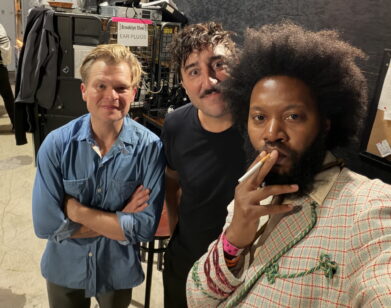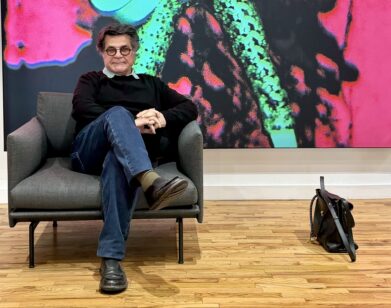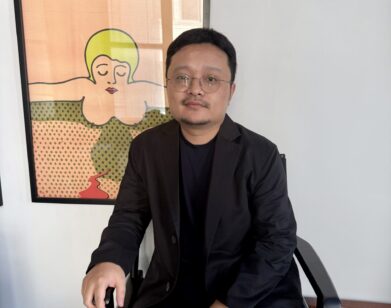in conversation
Liam Benzvi Sent Rufus Wainwright His Demo on Cameo

Liam Benzvi. Photo by Sam Penn.
Liam Benzvi began recording his first album during winter 2020’s quarantine, a time when venue closures and lockdowns turned musicians of every echelon back into bedroom mirror-and-hairbrush singers. It was during this time that Benzvi approached Rufus Wainwright on Cameo, a video sharing site that allows users to request personalized videos from their music idols. Benzvi paid $80 to connect with Wainwright, and an unlikely friendship arose when the aspiring musician took a risk and sent the Grammy-nominated artist his demo. Those rough cuts have since blossomed into Benzvi’s debut record, Acts of Service, out this week. To mark the occasion, the two connected over FaceTime, Benzvi from New York and Wainwright from London, to discuss the origins of their relationship. —TONIANN FERNANDEZ
———
LIAM BENZVI: So, we met on Cameo.
RUFUS WAINWRIGHT: Yes.
BENZVI: I wanted you to hear my song and the only way I could get it to you was if I paid $80 to get you to talk to me.
WAINWRIGHT: To be honest, the Cameo thing was worrisome at the outset. It was all kind of new territory. I’ve been doing it for about a year. It’s actually very—I wouldn’t say fulfilling—but it is touching at times, there’s something very gentle about it really, because you are bringing a lot of happiness to people. But I will say that when you reached out to me, you were the only one who had—
BENZVI: The audacity.
WAINWRIGHT: Yeah, the audacity was remarkable. But when I listened to the songs and got your vibe, I thought, okay, this kid is interesting. And I love the videos.
BENZVI: Thank you, I can’t believe you watched them.
WAINWRIGHT: I don’t recommend everybody sending me their demos, though. But it is nice to know what the young people are doing and get a sense of that.
BENZVI: Well I’ve always been inspired by you. The way you balance music and theatricality. And your voice is extraordinary.
WAINWRIGHT: That’s very sweet, you’re making me blush. I always knew that what I did was really bizarre and unique, for better or for worse.
BENZVI: “Gay Messiah” was the song that really got me hooked. You were very authentically yourself, and I just felt inspired.
WAINWRIGHT: There was one guy named John Boskovich, he wrote “Without You I’m Nothing” with Sandra Bernhard, which was a really seminal thing for me. I admired him. He was gay, out, crazy, an artist. I ended up meeting him and he told me, “you know, Rufus, the main thing is just don’t ever change. Don’t ever change. Just keep doing exactly what you’re doing.” And that really stuck with me. Thankfully I did not change. You just have to be pure and be your authentic self, which is frequently not the case in music at the moment.
BENZVI: I feel like you have to label yourself in such a concise way these days. Whether it’s in your bio, or on your socials or whatever. Sometimes I’m just like, what isn’t corny? Musician? Do I say singer? And ignore the songwriter part of myself?
WAINWRIGHT: It is hard to figure out. I always used singer/songwriter. These titles, they’re difficult. I’ve always divided my artistic career into three sections. One is that I’m a composer, you know, operas and stuff like that. Another one is a songwriter. That’s very different. And then the third is a singer. They’re all very different, but they’re all there. They’re almost unrelated sometimes. And they all have to be developed in different hothouses. I just got nominated for a Grammy. I didn’t win it, but that experience made me think about how there is no singer/songwriter category.
BENZVI: It’s true, and there should be. But then again, who cares.
WAINWRIGHT: Exactly.
BENZVI: I feel like I have this weird sense of humor and I try to use it in serious songs.
WAINWRIGHT: It’s all about the lyrics. I do really like your lyrics. That line about the cigarettes—“Nobody wants to bum my cigarette”—That really stood out to me. It’s whimsical, yet it’s cutting. Tell me about your song “Hiccup.”
BENZVI: I wanted to write this driving, visceral song about a blip, a little coordinate of adrenaline. And the rest of the lyrics are abstract images that center around that weird blip. And I think It’s mostly about the melody for me, especially the fade out at the end. I’m such a sap. At the end of the song I feel like, “Oh, this is the part where I get swept off my feet!”
WAINWRIGHT: I definitely hear the Cocteau Twins. It gives me that same wistful, romantic feeling.
BENZVI: I love the Cocteau Twins. When I was 16, I had an older boyfriend who would listen to them a lot. He had a very typical stoner psych record collection but then there was the big live Rufus Does Judy at Carnegie Hall vinyl smack in the middle.
WAINWRIGHT: That’s wonderful.
BENZVI: That’s how I started listening to your music. You were my cover king for a while. Your Joni [Mitchell] stuff is incredible.
WAINWRIGHT: That’s been a real journey. The thing for me with Joni is that I was never allowed to listen to her as a child, because my mother couldn’t stand her. She had good reasons and bad reasons. I grew up with an incredibly powerful mother, but that’s another story. My husband grew up in Germany, so he hadn’t grown up listening to Joni either. Later on, when he became a fan, we embarked on a journey through her music together. I learned a lot of her songs for the first time through singing them.
BENZVI: Oh, wow. I grew up in a very Joni-centric household. Do you love the Cocteau Twins even though you can’t understand the lyrics?
WAINWRIGHT: Sometimes it takes a few listens to understand. I had a friend who was obsessed with the Cocteau Twins. My friend Lily of the Valley. We used to hang out in the Lower East Side in the ‘90s. It was a really magical time, but it was intense too. Their music brings me back.
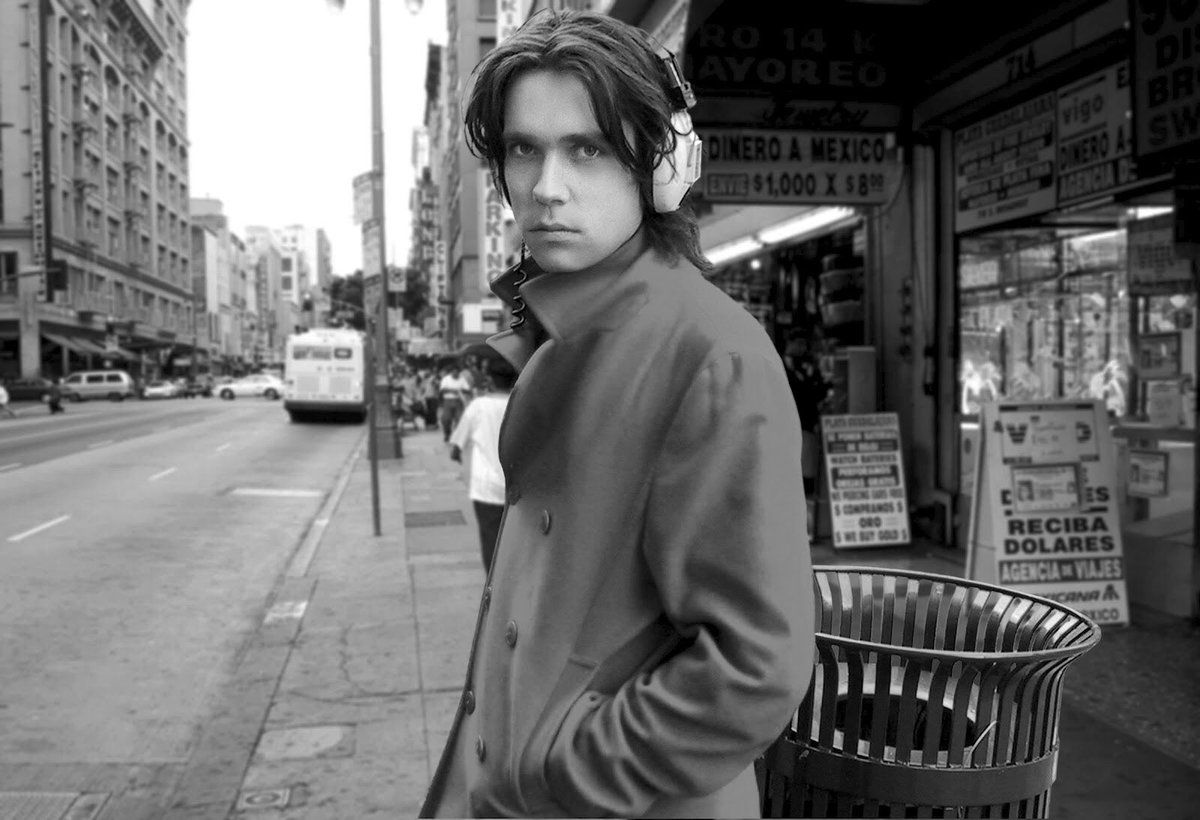
Photo courtesy of Rufus Wainwright.
BENZVI: What was the most intense thing that happened?
WAINWRIGHT: A few deaths here and there, O.D.s…but New York was changing a lot, you know, with Giuliani. It was right before 9/11. There was a real decadence in New York right before that occurred. It was a really fascinating place to be. This bubble of morbid anticipation.
BENZVI: Yes. I feel like the city might be in for a renaissance. It feels like a lot of people are coming back, from L.A., or wherever. Maybe everyone would rather be lonely together.
WAINWRIGHT: I had a very distinct period living in New York when I went out a lot, but I didn’t know anybody. A lot of your songs feel like that. They put me in the middle of a crowded room where I’ve never felt more alone.
BENZVI: Oh my god, yes. I’m always writing from someone else’s perspective, about what I think they think of me. Is that the superego or the id? I still don’t know.
WAINWRIGHT: Maybe that’s why it reminds me so much of New York. When I made my album Poses, I was writing a lot about what was going to happen in the future, there was a little bit of a clairvoyant quality.
BENZVI: I can totally imagine you seeing the future in that album, all the visions of grandeur.
WAINWRIGHT: Maybe this record says something about what you’re about to embark upon…Tell me about the process of making it.
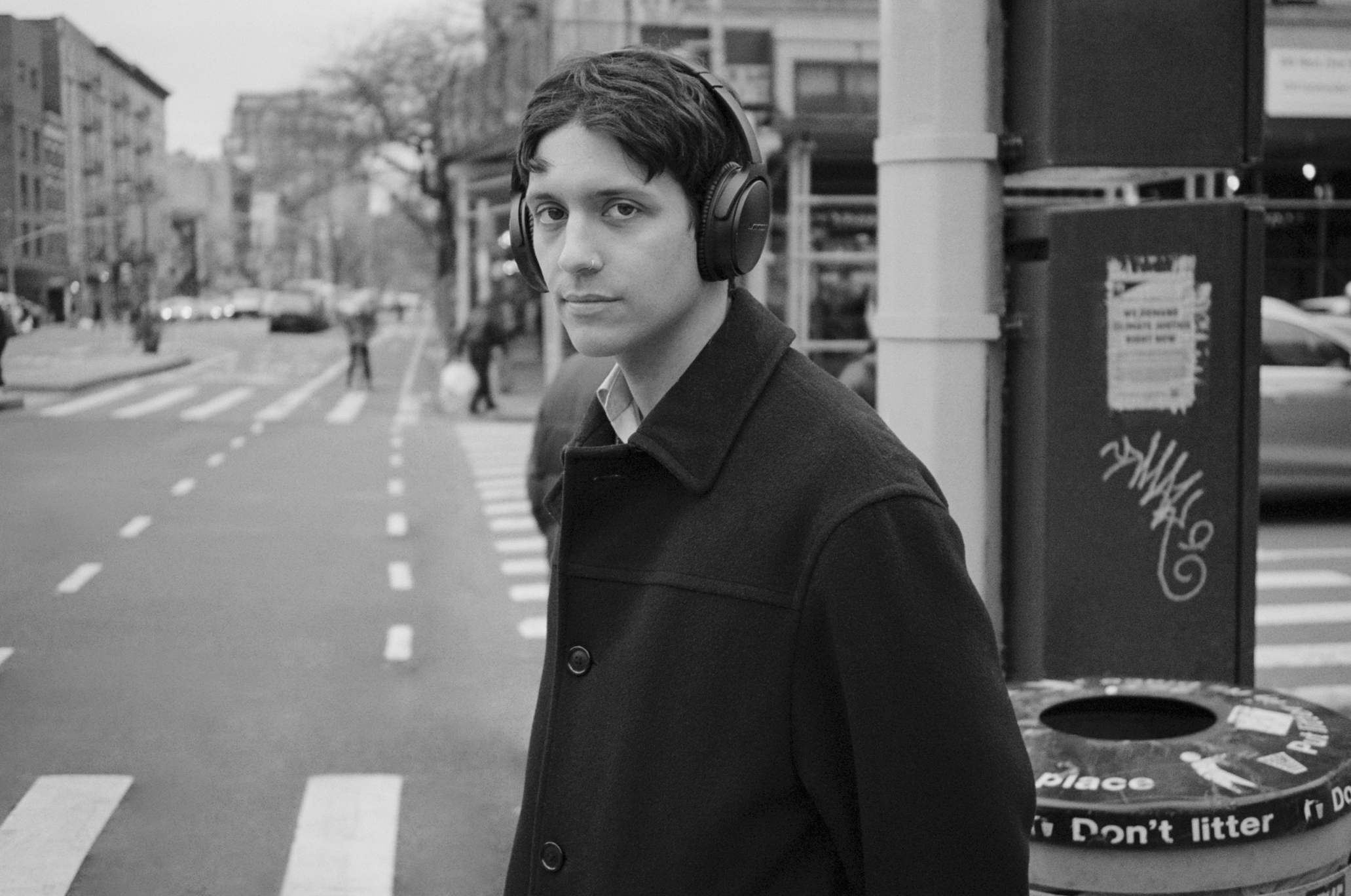
Liam Benzvi. Photo by Sam Penn.
BENZVI: It was mostly conceived on the piano and the guitar. I tried to use this time to get better at my instruments. I’ve often felt like I don’t have the musical vocabulary to access the spaces inhabited by the people I really admire. I’ve always had this sort of imposter syndrome in that regard. I wanted to challenge that feeling, and so in making this record I really focused on that.
WAINWRIGHT: Oh, imposter syndrome. I think that’s always the case. There’s this double-edged sword: on one hand, thinking that you belong at the top of the heap, and on the other, thinking that you don’t know enough. It can feel like you’ll never be understood. I come from a musical family, so I had that training early on.
BENZVI: You released an album during the pandemic. Was that weird? You were really resourceful.
WAINWRIGHT: Well the album, Unfollow the Rules, was ready. I have the philosophy that you have to keep working no matter what, and that every situation is a test which you must conquer. I also think it’s very important to be at home in order to process the world.
BENZVI: I thrive in my hermit state.
WAINWRIGHT: In some ways, not to go anywhere is like a dream come true.
BENZVI: But I am excited to play for a crowd. I have this new band.
WAINWRIGHT: Will you let me know when you’re going to play New York? Or LA?
BENZVI: Yes, definitely. What are you doing today?
WAINWRIGHT: Today, I’m working on the musical here in London, which I should get back to. This has been really great.
BENZVI: It’s been surreal. Thank you.
———



